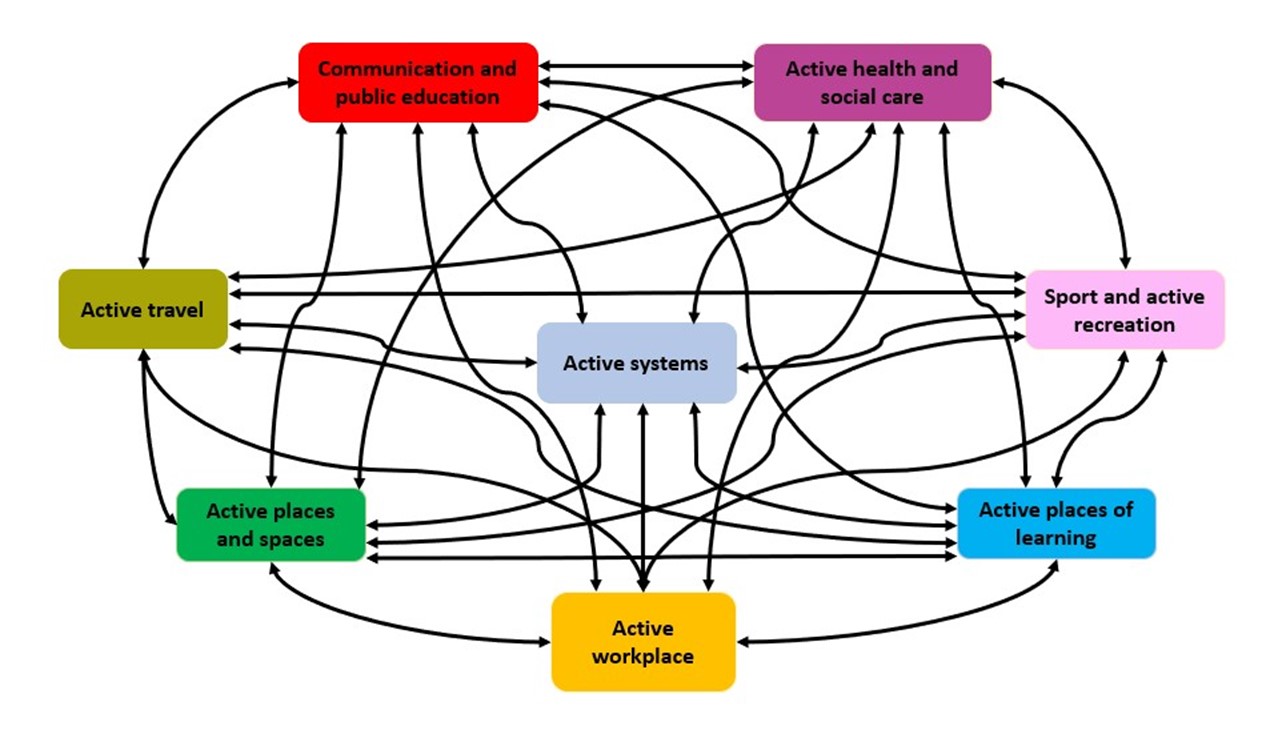Jerry Saddington, one of ReferAll’s Sales and Account Managers looks at the recently published framework documents from Public Health Scotland.

Public Health Scotland recently published a key framework document that set out the store on how physical activity is to be at the heart of keeping Scots both mentally and physically healthy in the coming years:
- A Systems Based Approach to Physical Activity in Scotland (Nov 2022)
- Physical Activity Referral Standards (Jan 2022)
Integral to the overall framework is the ability to measure and report on the involvement and progress of both the organisations and individuals taking part in the initiatives.
The documents have at their heart the need to adopt an evidence-based framework and practice to underpin all the work being done so people across Scotland can reap the full benefits of being fitter and healthier.
The Systems Based Approach states:
“…….actions should be informed by a robust scientific evidence base, as well as practice-based evidence from evaluation and demonstration of impact. Additionally, the insight, knowledge and experience of respected practitioners and policy makers working in a particular field should also be considered alongside the scientific evidence.”
This approach is fundamental to the success of the initiative. Accurate reporting of what is working, and what isn’t, will keep the wide range of actions and activities proposed across Scotland heading in the right direction and allow all the agencies involved to get the results that matter so much.
Indeed, when discussing strategic delivery outcomes and associated actions for sport and active recreation, two of the stated aims are:
- Enable authorities to fulfil their statutory duties, in the ‘adequate’ provision of active recreation and sport.
- Prioritise public funds to target the least active, as well as to retain existing and returning participants.
And when specifically referring to the review of data and evidence, agencies should:
- Collate key information and statistics related to physical activity in the context in which you are working, whether this be nationally or locally, for example community health profiles, national and/or local surveillance data to emphasise the risks of inactivity and benefits of getting the population moving.
- Use the outcomes framework to sense check that evidence exists to demonstrate a theory of causation between the action and the desired outcome.
- Increase access to and maximise the use of physical activity related data and intelligence across organisations to inform national and local planning and decision-making.
- Strengthen research, evidence, and evaluation as part of the implementation of the Active Scotland Delivery Plan (or equivalent national physical activity policy).
Being able to provide accurate empirical evidence of what’s been done, and the outcomes resulting from activities, will allow key questions to be answered, such as:
- What is going well and should be maintained?
- What is happening but requires improvement?
- Gaps that require development - i.e., what could you do differently?
Compiling the answers to such questions from across the wide range of activities promoted under the plan then allows long -term outcomes to be assessed and show positive changes in population health status. The answers also enable an ability to show how to improve Scotland’s active infrastructure, people, and places.
 Exercise Referral Schemes fit firmly into the structure of activities that take people on the journey from inactivity to improved activity and a healthier future that is at the heart of the plan. But to complete the process, good data also needs to be collected, collated, monitored and continually evaluated against Key Performance Indicators.
Exercise Referral Schemes fit firmly into the structure of activities that take people on the journey from inactivity to improved activity and a healthier future that is at the heart of the plan. But to complete the process, good data also needs to be collected, collated, monitored and continually evaluated against Key Performance Indicators.
The Physical Activities Referrals Standards reinforce this message with the following requirement for data systems:
Physical activity referral services and commissioners should:
- Ensure data systems are established to record, extract, report and monitor physical activity referral service data. Also consider the use of existing data systems.
- Use data systems that enable and facilitate the secure transfer of data between the referrer and the physical activity referral provider.
This requirement is then followed with a clear definition of the monitoring and evaluation standards that are expected from both commissioners and providers:
Commissioners should:
- Ensure monitoring and evaluation forms are an integral part of all commissioned physical activity referral services.
Physical activity referral services should:
- Establish a monitoring and evaluation framework that includes all aspects of the service including the referral process, analysis of the type of referrals received, reach, triage process, health behaviour change techniques, interim and follow-up consultations, feedback to referrers, data input, extraction, and reporting.
This is the strength of expertly designed systems such as ReferAll. As well as providing an essential IT solution for the smooth and efficient running of health and wellbeing referral schemes, key data is recorded and compiled in a meaningful way that meets the needs of the system-based approach proposed by the new strategy for Scotland.
Find Out More:
- https://www.publichealthscotland.scot/news/2022/november/framework-provides-guide-to-increasing-physical-activity-across-scotland/
- https://www.publichealthscotland.scot/media/16184/a-systems-based-approach-to-physical-activity-in-scotland.pdf
